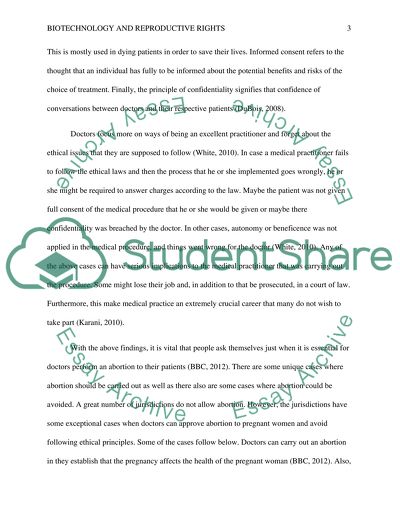Biotechnology and Reproductive Rights Essay Example | Topics and Well Written Essays - 750 words - 1. Retrieved from https://studentshare.org/health-sciences-medicine/1456121-biotechnology-and-reproductive-rights
Biotechnology and Reproductive Rights Essay Example | Topics and Well Written Essays - 750 Words - 1. https://studentshare.org/health-sciences-medicine/1456121-biotechnology-and-reproductive-rights.


